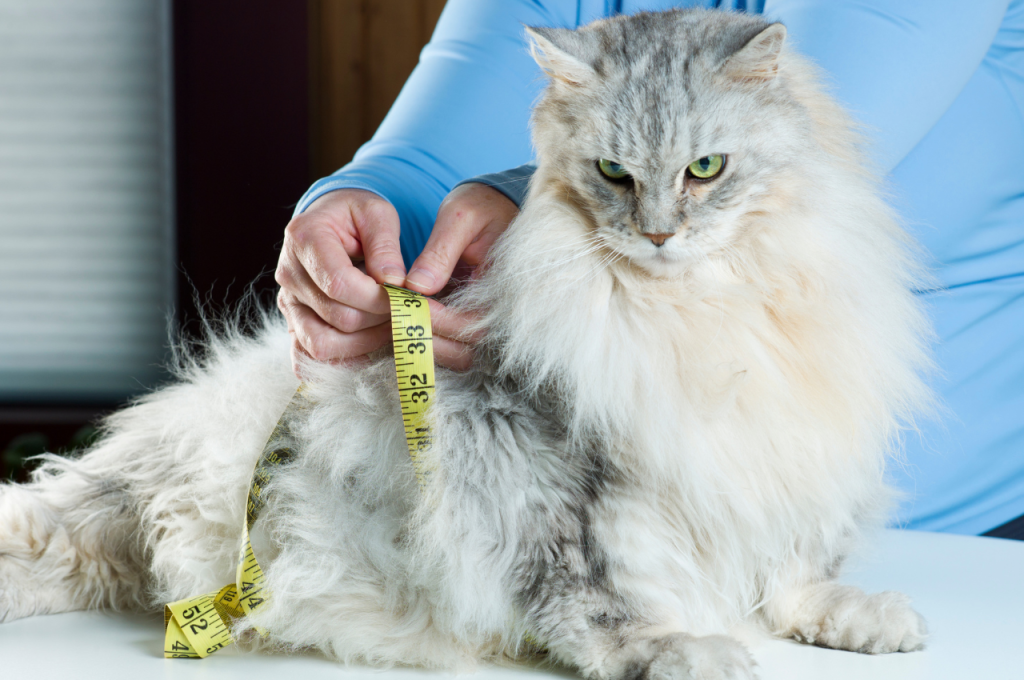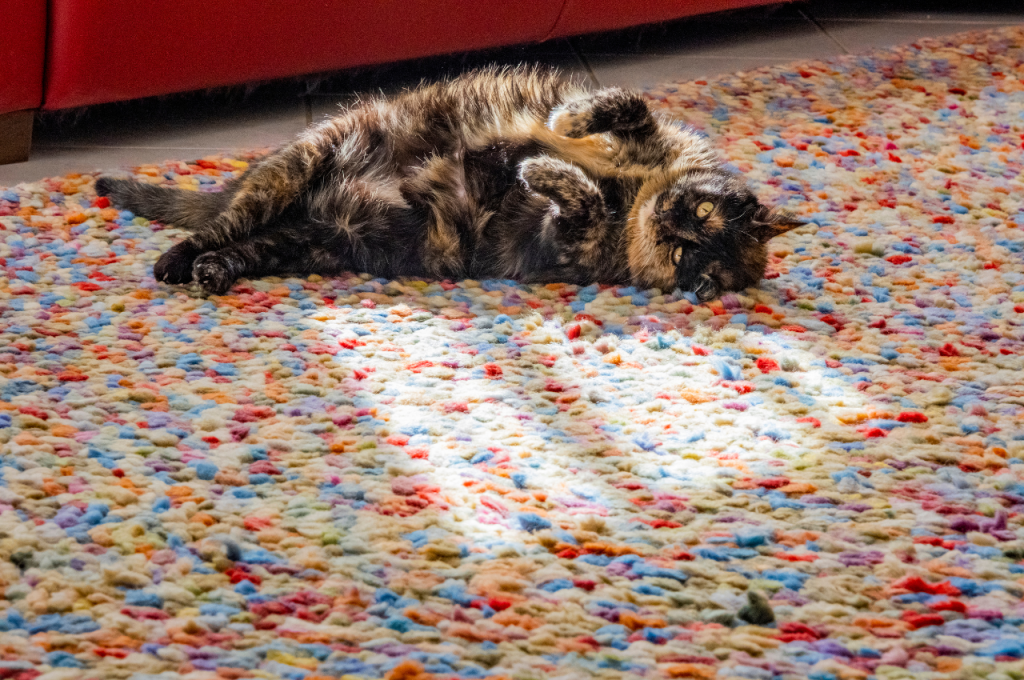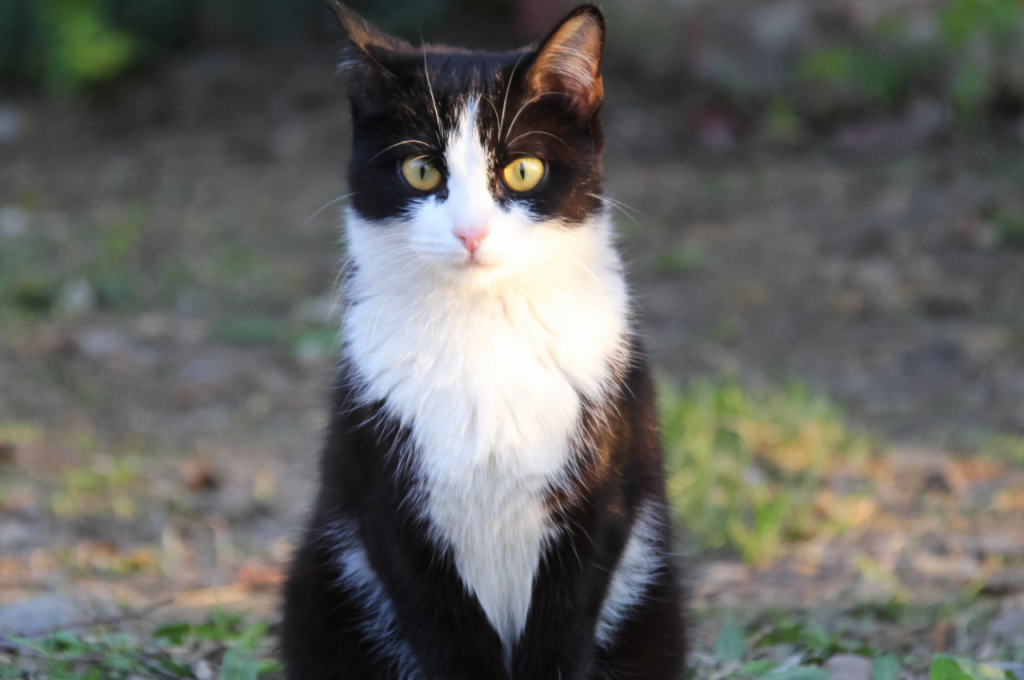The best cat food for overweight cats is a high-protein, low-calorie diet specifically formulated for weight management. Overweight cats require a specialized diet to help them shed the extra pounds and maintain a healthy weight.
A high-protein, low-calorie cat food is essential to provide the necessary nutrients while reducing calorie intake. These types of cat foods often contain lean sources of protein such as chicken or fish and are supplemented with fiber to promote satiety.
It is important to consult with a veterinarian to determine the best course of action for your overweight cat and to ensure any dietary changes are made gradually. By choosing a suitable cat food, you can help your overweight cat reach a healthier weight and improve their overall well-being.
Benefits of Feeding A Special Diet to Overweight Cats
Feeding a special diet to overweight cats can provide numerous benefits, promoting weight loss and improving their overall health. Cats that are overweight face a range of health concerns, including an increased risk of diabetes, arthritis, and heart disease. By feeding them a special diet tailored to their needs, you can help them shed excess pounds and lead a healthier, more active life.

Promotes Weight Loss
A special diet designed specifically for overweight cats can help them shed those extra pounds and reach a healthy weight. These diets are formulated to be low in calories while still providing all the necessary nutrients your cat needs. They typically contain a higher amount of protein to keep your cat feeling fuller for longer, reducing the temptation to overeat. Additionally, these diets often include ingredients that help to boost metabolism and burn fat, such as L-carnitine. By following a special weight loss diet, your cat can safely and gradually reach their ideal weight, reducing the strain on their joints and organs.
Improves Overall Health
Feeding overweight cats a special diet not only helps them lose weight but also improves their overall health. These diets are usually fortified with essential vitamins and minerals to support a strong immune system and promote optimal organ function. They may also include added antioxidants, such as vitamin E and selenium, which help to reduce oxidative damage to cells and promote cellular health. By providing your cat with a balanced and nutritionally complete diet, you are supporting their overall well-being and reducing the risk of developing obesity-related health issues.
Furthermore, special weight loss diets for cats often contain additional ingredients that can provide extra benefits. For example, some diets are enriched with omega-3 fatty acids, which have anti-inflammatory properties and can benefit cats with arthritis. Others may include ingredients specifically targeted at reducing hairballs or supporting urinary tract health. These added benefits can help to address specific issues your overweight cat may be experiencing, ensuring they receive comprehensive care.
Overall, feeding a special diet to overweight cats can have significant benefits, promoting weight loss and improving their overall health. These diets are meticulously formulated to provide the right balance of nutrients while focusing on reducing caloric intake. By implementing a special diet for your overweight cat, you are taking a proactive step towards their well-being, enabling them to live a healthier, more fulfilling life.
Key Factors in Choosing Cat Food for Overweight Cats
When it comes to choosing the best cat food for overweight cats, there are several important factors to consider. These factors include the calorie content, protein levels, and the quality of ingredients. By paying attention to these key aspects, you can help your overweight cat achieve a healthy weight and improve their overall well-being.
Calorie Content
One of the most crucial factors to consider when selecting cat food for overweight cats is the calorie content. It is essential to choose a cat food that is specially formulated for weight management, as these products typically have lower calorie levels compared to regular cat food. Look for labels that indicate “weight control” or “light” to ensure that you are selecting a suitable option for your cat’s needs.
Protein Levels
Protein is a vital component in cat food, especially for overweight cats. High-protein cat food can help support your cat’s muscle development and promote a healthy body composition. When choosing cat food for overweight cats, opt for products with a high protein content and prioritize meat-based proteins such as chicken, turkey, or fish. Avoid cat foods that contain excessive carbohydrates, as these can contribute to weight gain in cats.
Quality of Ingredients
The quality of ingredients in cat food plays a significant role in your cat’s health, particularly for overweight cats. Look for cat food brands that use high-quality, whole-food ingredients without artificial additives or fillers. Avoid cat foods that contain by-products or excessive amounts of grains, as these ingredients offer limited nutritional value and may contribute to weight gain. Instead, choose cat foods that feature natural and nutritious ingredients like real meat, vegetables, and fruits.
Top 5 Healthy Cat Food Options for Overweight Cats
Discover the top 5 healthy cat food options tailored for overweight cats to support their weight management goals and overall well-being. These specialized cat foods are formulated with quality ingredients to help your feline friend maintain a healthy weight and stay active.

1. High-protein, Low-calorie Formula
A high-protein, low-calorie formula cat food is a specialized diet designed to support weight management in overweight or obese cats. By including a higher proportion of protein in the diet, cats can maintain muscle mass while losing excess fat, leading to a healthier body composition.
2. Grain-free Diet with Limited Ingredients
By eliminating grains and limiting the number of ingredients, this type of cat food aims to reduce the likelihood of triggering adverse reactions in sensitive cats while still providing essential nutrients for overall health and well-being.
3. Weight Management Formula with Added Fiber
A weight management formula with added fiber cat food is a specialized diet designed to support weight loss or maintenance in overweight or obese cats. By incorporating additional fiber into the diet, this formula promotes feelings of fullness and satiety, helping cats consume fewer calories without feeling deprived.
4. Wet Food for Weight Control
Wet food for weight control is a specialized dietary option designed to assist overweight or obese cats in managing their weight. This type of food typically contains fewer calories than traditional options while still providing essential nutrients.
5. Prescription Diet Recommended By Veterinarian
A prescription diet recommended by a veterinarian is a specialized nutritional plan tailored to address specific health concerns or dietary requirements in cats. These diets are formulated with carefully selected ingredients to support various medical conditions such as obesity, kidney disease, or digestive issues.
Tips for Feeding Overweight Cats to Aid Weight Loss
When it comes to helping your overweight cat shed those extra pounds, the key is to focus on their diet and exercise routine. Here are some essential tips to guide you through the process:
Avoid Free Feeding
Free feeding your overweight cat can lead to overeating, making it difficult for them to lose weight. Instead, establish a feeding schedule to control portions and monitor their intake.
Monitor Portion Sizes
Keep track of the amount of food you serve to your overweight cat. Use a measuring cup to ensure they receive the appropriate portion size according to their weight management plan.
Incorporate Regular Exercise
Encourage your cat to engage in regular physical activity. Provide interactive toys, set aside time for play, and consider introducing a safe outdoor environment for exercise, such as a catio.
Veterinary Consultation for Dietary Recommendations
When it comes to your cat’s diet, seeking guidance from a veterinarian is essential for ensuring their nutritional needs are met.

Importance of Veterinary Input
When it comes to addressing the dietary needs of overweight cats, consulting a veterinarian is paramount. A veterinarian’s expertise is crucial in evaluating the specific health concerns and individual requirements of overweight cats. They can provide customized dietary recommendations, tailored to the cat’s age, weight, activity level, and any existing health issues. This personalized approach ensures that the cat receives the optimal nutrition for effective weight management.
Customized Diet Plans
Veterinarians have the knowledge and training to create customized diet plans for overweight cats. By analyzing the cat’s current diet and nutritional deficiencies, veterinarians can determine the most suitable cat food to promote weight loss while maintaining proper nourishment. They can recommend specific brands and options that best align with the cat’s dietary needs, ensuring a balance between satisfying hunger and achieving weight loss.
Frequently Asked Questions
Here are some questions about the best cat food for overweight cats:
Q. What foods are good for overweight cats?
Good foods for overweight cats include high-protein, low-carbohydrate diets that promote weight loss. These diets should be formulated with essential nutrients and vitamins. Cats should also eat portions that are appropriate for their size and activity level.
Q. What cat food promotes weight loss?
Cat food designed for weight loss can help your cat shed those extra pounds. It contains fewer calories while still providing the necessary nutrients. Choose a high-quality cat food labeled specifically for weight management to ensure your cat’s health and well-being.
Q. What cat food is good for putting on weight?
High-calorie cat foods rich in protein and healthy fats are good for weight gain. Look for nutrient-dense options.
Q. How do I get my fat cat to lose weight?
To help your fat cat lose weight, limit its food intake and increase exercise. Provide a balanced diet and play with your cat regularly. Consult a vet for a personalized weight loss plan.
Conclusion
Incorporating the right cat food can benefit your overweight feline’s health and well-being. Remember, a balanced diet tailored for weight management is key to helping your cat achieve a healthy weight. Prioritize quality ingredients and consult with your veterinarian for the best nutrition plan.
Your furry companion deserves the best care.
